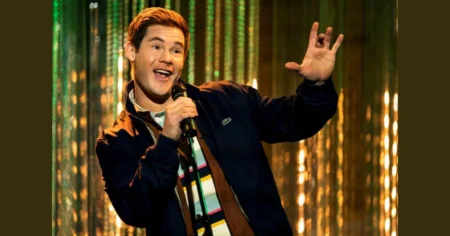Introduction
Thomas Sullivan Roadkill is a name that has become synonymous with an unconventional yet impactful approach to wildlife conservation. While many might view roadkill as a grim reminder of the collision between human development and wildlife, Thomas Sullivan has transformed it into an art form, a study of natural history, and a platform for environmental awareness. This article explores the life and work of Thomas Sullivan and how his passion for roadkill has sparked conversations about the relationship between humans and wildlife.
Early Life and the Origins
Thomas Sullivan Roadkill didn’t start as a lifelong passion but rather evolved from Sullivan’s early experiences with nature. Growing up in a rural area surrounded by wildlife, forests, and open roads, Sullivan developed a deep connection with the natural world. His curiosity about the animals he encountered extended to those he found lifeless by the roadside, eventually leading to his unique focus on roadkill.
Roadkill: A Different Perspective
To many, roadkill is simply a tragic outcome of vehicles colliding with wildlife. However, Thomas Sullivan Roadkill views it differently. He sees roadkill as an opportunity to study animals up close, understand their lives, and preserve their remains through taxidermy. His approach is one of reverence for the creatures that once roamed the wild, not of morbid fascination.
Biography
| Category | Details |
| Full Name | Thomas Sullivan |
| Nickname | Thomas Sullivan Roadkill |
| Birthplace | Rural area (specific location not disclosed) |
| Early Life | Grew up surrounded by nature, developed a deep connection with wildlife |
| Field of Work | Wildlife Conservation, Natural History, Taxidermy |
| Focus | Study and preservation of roadkill |
| Key Contributions | Transforming roadkill into an art form and a resource for scientific research |
| Advocacy | Environmental awareness, wildlife conservation |
| Notable Techniques | Taxidermy, meticulous documentation of roadkill incidents |
| Collaborations | Worked with scientists, researchers, and conservationists |
| Impact | Raised awareness about the effects of human development on wildlife |
| Legacy | Recognized for his unique approach to roadkill and contributions to con |
The Art of Taxidermy in Thomas Sullivan Roadkill
Taxidermy plays a central role in Thomas Sullivan Roadkill’s work. Over the years, Sullivan has honed his skills, transforming lifeless animals into preserved specimens that serve both educational and artistic purposes. Through taxidermy, Sullivan gives these animals a second life, allowing people to appreciate their beauty and learn about their anatomy, behavior, and place in the ecosystem.
Environmental Awareness Through Thomas Sullivan Roadkill
One of the primary motivations behind Thomas Sullivan Roadkill is to raise awareness about the environmental impact of human activities on wildlife. By documenting and preserving roadkill, Sullivan highlights the dangers that roads and vehicles pose to animals. His work serves as a powerful reminder of the need for better infrastructure planning, such as wildlife crossings, to protect animals from becoming roadkill.
Public Perception and Controversy Surrounding
Thomas Sullivan Roadkill has not been without its share of controversy. Some view his activities as macabre or disrespectful to the animals involved. However, Sullivan argues that his work is a form of respect, allowing these animals to be remembered and studied rather than left to decay by the roadside. Public perception of his work varies, with some appreciating the educational value and others remaining uncomfortable with the concept.
Thomas Sullivan Roadkill as a Window into Wildlife Behavior
Through his extensive work with roadkill, Thomas Sullivan has gained unique insights into wildlife behavior. By examining the types of animals found as roadkill and the circumstances of their deaths, Sullivan has concluded
animal migration patterns, feeding habits, and the impact of seasonal changes on wildlife. This information is valuable for conservation efforts and understanding the broader ecological impact of roads.
Collaboration with Scientists and Researchers in Thomas Sullivan Roadkill
Thomas Sullivan Roadkill has attracted the attention of scientists and researchers who see the value in Sullivan’s extensive collection of preserved roadkill specimens. He has collaborated with various academic institutions and wildlife organizations to provide specimens for study, contributing to research on animal anatomy, disease, and conservation. His work has proven to be an unexpected but valuable resource for the scientific community.
The Ethical Considerations
Working with roadkill raises several ethical questions, which Thomas Sullivan Roadkill is keenly aware of. Sullivan ensures that his work is conducted respectfully and legally, adhering to local wildlife laws and regulations. He also emphasizes the importance of not causing harm to living animals in the pursuit of roadkill, advocating for a focus on naturally deceased specimens.
Roadkill in Popular Culture
Roadkill has permeated popular culture in various ways, from horror movies to dark humor. However, Thomas Sullivan Roadkill seeks to elevate the conversation from mere shock value to one of understanding and appreciation for wildlife. By bringing attention to the issue thoughtfully, he hopes to change the narrative surrounding roadkill in popular culture.
Educational Outreach and Workshops by Thomas Sullivan Roadkill
One of this goals is to educate the public about roadkill and its broader implications. Sullivan conducts workshops and lectures on the subject, teaching people about wildlife conservation, the basics of taxidermy, and how to safely handle roadkill. His educational efforts aim to demystify roadkill and encourage a more compassionate approach to wildlife.
Thomas Sullivan Roadkill as a Reflection of Human-Wildlife Conflict
He is a stark indicator of the ongoing conflict between human development and wildlife. Sullivan’s work brings attention to how roads and vehicles disrupt animal habitats and endanger their lives. By studying roadkill, he sheds light on the broader issue of human-wildlife conflict and advocates for solutions that can mitigate this impact.
The Role of Thomas Sullivan Roadkill in Ecological Studies
Beyond its immediate impact, Thomas Sullivan Roadkill plays a role in ecological studies. Sullivan’s meticulous documentation of roadkill incidents contributes to a growing body of data that can be used to study animal populations, migration patterns, and the effects of environmental changes on wildlife. His work helps researchers understand the long-term ecological consequences of roadkill.
Wildlife Crossings
One potential solution to the problem of roadkill is constructing wildlife crossings—bridges and tunnels that allow animals to safely cross roads without coming into contact with vehicles. He is a strong advocate for these structures, which have significantly reduced roadkill incidents in areas where they are implemented. His work highlights the need for more investment in such infrastructure to protect wildlife.
Thomas Sullivan Roadkill as a Source of Data for Conservation
He has proven invaluable for conservation efforts. By analyzing the types and numbers of animals found as roadkill, conservationists can identify species particularly vulnerable to road accidents and develop strategies to protect them. Sullivan’s contributions have helped inform conservation policies and initiatives aimed at reducing roadkill and preserving wildlife.
The Emotional Impact
Despite his passion, working with roadkill can take an emotional toll on Thomas Sullivan. He is often confronted with the harsh realities of animal death and the impact of human activity on wildlife. However, he channels these emotions into his work, using them as motivation to continue raising awareness and promoting conservation.
The Future
As human development continues to expand, the issue of roadkill is likely to persist. However, It remains optimistic about the future. Sullivan believes that with increased awareness, better infrastructure planning, and continued research, the impact of roadkill on wildlife can be mitigated. His work is paving the way for a future where roadkill is no longer a common occurrence but a rare exception.
Thomas Sullivan Roadkill’s Legacy
He is not just a personal passion; it is a legacy Sullivan hopes to leave for future generations. Through his efforts, he has brought attention to an often-overlooked issue and inspired others to take a more thoughtful approach to wildlife conservation. Sullivan’s legacy is one of respect for nature, a commitment to education, and a dedication to making the world a safer place for all living creatures.
Thomas Sullivan Roadkill in the Context of Global Wildlife Conservation
While He primarily focuses on his local area, the issue affects wildlife globally. From the highways of North America to the rural roads of Africa, roadkill is a universal problem that requires global solutions. Sullivan’s work serves as a model for how individuals can contribute to wildlife conservation locally while also addressing broader global challenges.
Conclusion
Thomas Sullivan Roadkill is a testament to the power of individual passion and its potential to make a difference. Through his work, Sullivan has transformed a seemingly grim subject into a platform for education, conservation, and environmental awareness. His contributions to the study of roadkill have provided valuable insights into wildlife behavior and conservation and changed how people perceive and interact with the natural world. Thomas Sullivan Roadkill’s legacy will continue to inspire others to view roadkill not as a tragic inevitability but as an opportunity to learn, preserve, and protect the wildlife that shares our planet.








